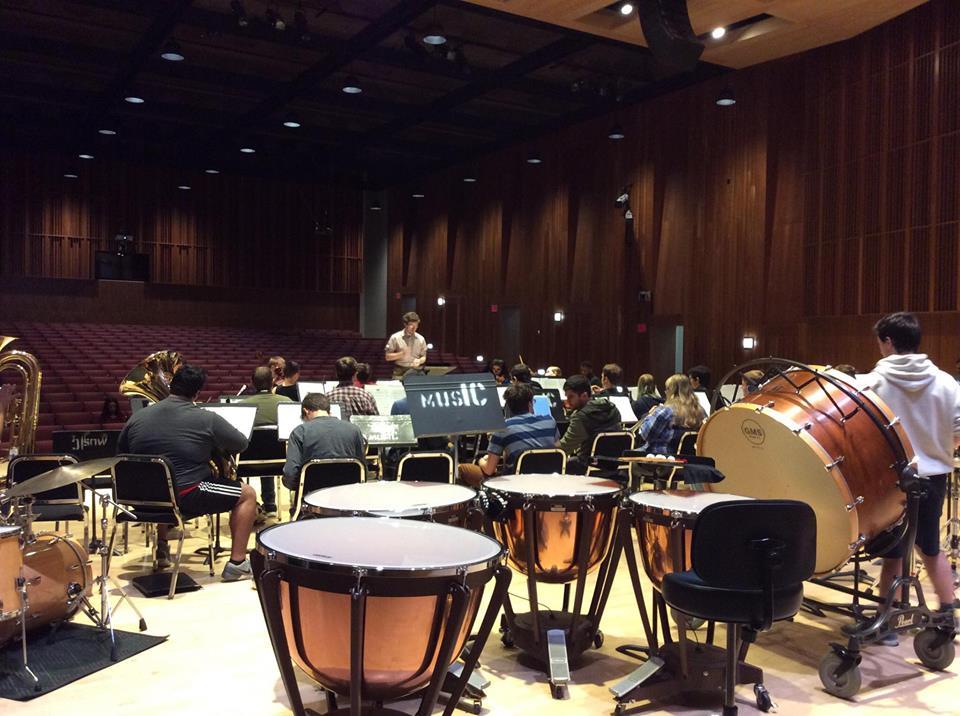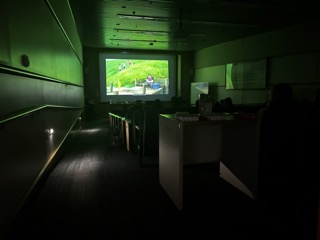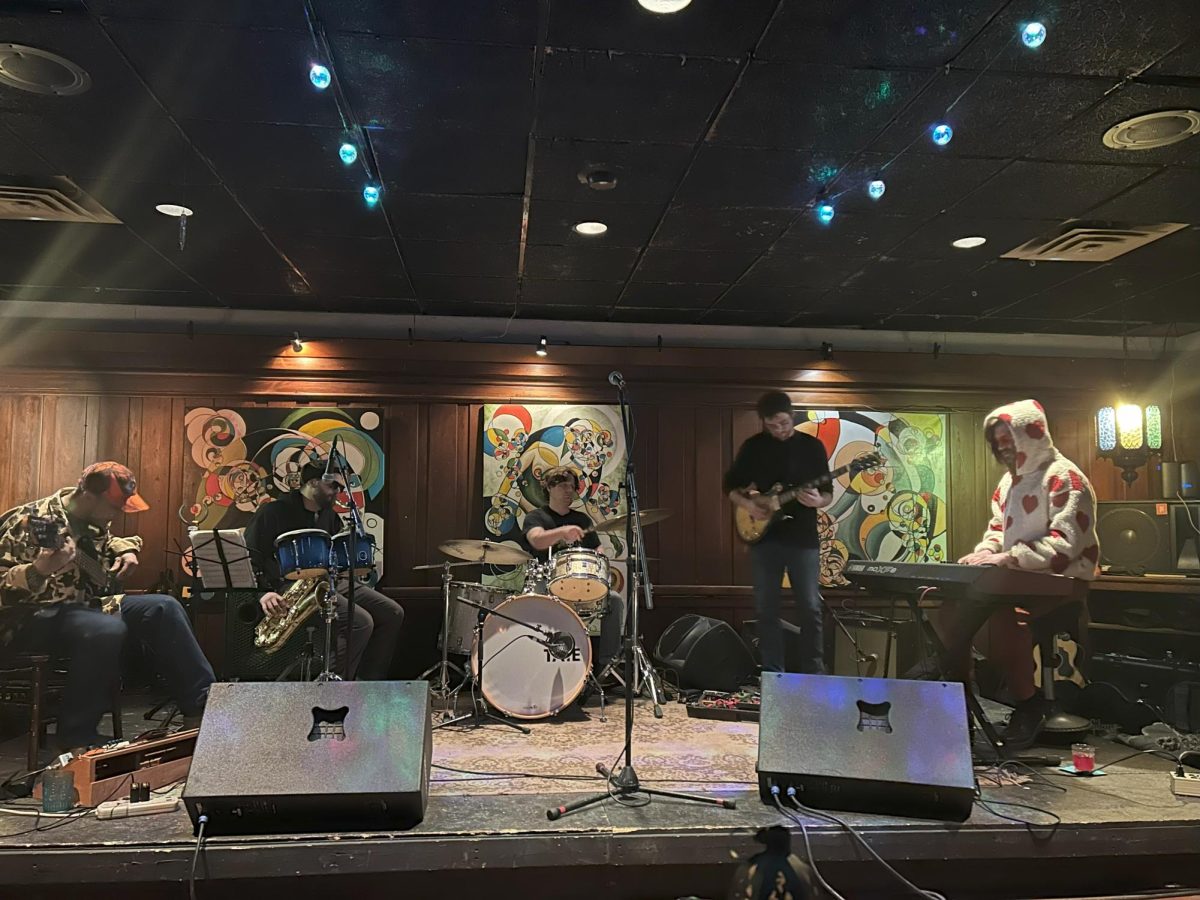KEY POINTS
- The Ithaca College Gamer Symphony Orchestra plays music from popular video games.
- The group’s first performance this semester is on Wednesday, November 1.
- The group shares a love for video games and sees its music as its own art form.
Inside Ford Hall at Ithaca College’s Whalen School of Music, there are only a few people in the seats. Instrument cases are scattered everywhere, and the student performers are on the stage. It’s dress rehearsal; they are wearing their everyday clothes, sitting in chairs with their instruments, tuning them and getting ready for their cue. The conductor raises their baton, counts the students in and, then, orchestral music begins to fill the space.
The sounds are not those of your ordinary orchestral music, but the music of some of the world’s favorite and most popular video games. HALO, The Legend of Zelda, Kirby and Mario, are just some of the video game soundtracks the Ithaca College Gamer Symphony Orchestra rehearsed, and will be expected to play at the first performance this semester on Nov. 1.
Griffin Charyn, president of the orchestra, said group members share a collective love and appreciation for video games and the music behind it, and with this orchestra, they want to present the medium as its own art form.
“We’re here to promote video games music as the art it really is, and share our experiences with others.”

The Orchestra
The orchestra is a student-led organization, which means they perform, arrange and conduct the music themselves.
Jeremy Werner, one of the arrangers, said he decided to attend Ithaca College solely on the fact that the school had an orchestra dedicated to showcasing video game music. Werner said he has always had a passion for video games and the music.
“Since I was in high school, I’ve been working and arranging video game music so it can be played by orchestras, or just myself on my free time,” he said.
The students in the group share the belief that video game music should be treated as its own style of artistic expression. Werner said it’s different from other forms of orchestral music, whether that is a film score or theater soundtrack, for example, but it still has the same mission in telling a story.
“The composer wrote it so people can sit in an audience and listen to it, whereas with video game music, you want to make it fun to listen to,” he said. “It has to evoke a certain emotion and it has to go along with the game, it’s interactive in a way.”
Jennifer Skala, vocalist, has been in the group for three semesters now, and agrees with Werner in that video game music is more complex than it seems.
“Music definitely has its role in evoking the story, the emotion and setting,” Skala said. “I definitely believe it’s an art form, and even more so because it has to contend with all these other aspects of gaming that are involved, like character and setting.”
Behind the Art of the Video Game Music



















